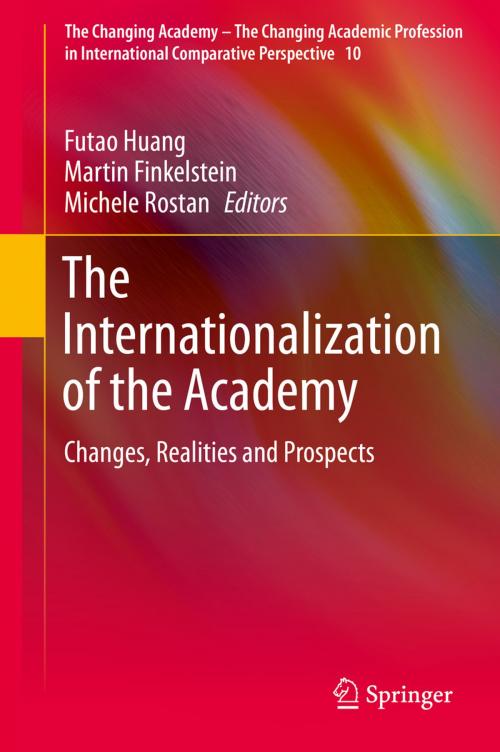The Internationalization of the Academy
Changes, Realities and Prospects
Nonfiction, Reference & Language, Education & Teaching, Educational Theory, Philosophy & Social Aspects, Higher Education| Author: | ISBN: | 9789400772786 | |
| Publisher: | Springer Netherlands | Publication: | October 25, 2013 |
| Imprint: | Springer | Language: | English |
| Author: | |
| ISBN: | 9789400772786 |
| Publisher: | Springer Netherlands |
| Publication: | October 25, 2013 |
| Imprint: | Springer |
| Language: | English |
This volume provides a nuanced empirical assessment of the extent to which the academic profession is internationalized at the beginning of the 21st century. It indicates which are the most internationalized academic activities, and focuses on specific topics such as physical mobility for study or professional purposes, teaching abroad or in another language, research collaboration with foreign colleagues, and publication and dissemination outside one’s native country or in another language. It places the main theme in the wider context of the history of higher education’s internationalization. It provides explanations on what drives and deters academics from international activity, and documents some of the consequences that internationalization has on academic work and productivity.
This study is based on a survey of 25,000 academics working at higher education institutions in 18 countries and Hong Kong on five continents. Comparing data from the 1992 Carnegie International study to the 2007 CAP survey, relying on respondents’ perceptions of change, and comparing different academic generations, it offers valuable insights on changes in the internationalization of the academy.
This volume provides a nuanced empirical assessment of the extent to which the academic profession is internationalized at the beginning of the 21st century. It indicates which are the most internationalized academic activities, and focuses on specific topics such as physical mobility for study or professional purposes, teaching abroad or in another language, research collaboration with foreign colleagues, and publication and dissemination outside one’s native country or in another language. It places the main theme in the wider context of the history of higher education’s internationalization. It provides explanations on what drives and deters academics from international activity, and documents some of the consequences that internationalization has on academic work and productivity.
This study is based on a survey of 25,000 academics working at higher education institutions in 18 countries and Hong Kong on five continents. Comparing data from the 1992 Carnegie International study to the 2007 CAP survey, relying on respondents’ perceptions of change, and comparing different academic generations, it offers valuable insights on changes in the internationalization of the academy.















